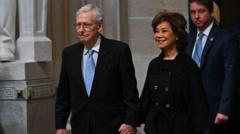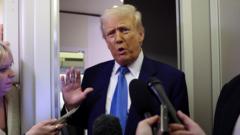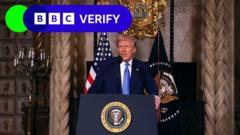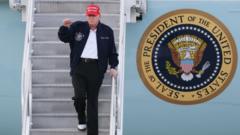As Europe grapples with security challenges stemming from the Ukraine crisis, a security summit convened by French President Emmanuel Macron seeks to foster a cohesive strategy among key European nations. With the U.S. hosting discussions with Russia and leaving Europe’s leaders feeling sidelined, the urgency for action grows.
**Unity in Europe: The Quest for a Cohesive Response to Ukraine's Challenges**
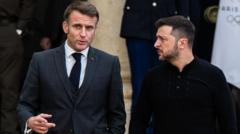
**Unity in Europe: The Quest for a Cohesive Response to Ukraine's Challenges**
European leaders aim to create a unified stance on Ukraine's future amid uncertainties from the U.S. administration.
The summit includes military heavyweights: the UK, France, Germany, Italy, Poland, Spain, and Denmark. Their shared objective is to reinforce European security and enhance military spending, while navigating a delicate balance between domestic political pressures and international responsibilities.
With Ukraine excluded from the U.S.-Russia talks, European leaders emphasize Kyiv's participation in any negotiations concerning its future. They recognize that long-standing U.S.-European security ties are now under scrutiny, especially with the Trump administration sending mixed signals about its commitment to Ukraine.
The discussions focus on the prospect of deploying a “reassurance force” to Ukraine post-ceasefire, which would serve as a show of solidarity with Ukrainians, while intended to signal to the U.S. that Europe is taking defense seriously. Yet, this idea faces considerable public and political resistance, complicating potential troop commitments.
Despite these challenges, leaders express a desire for improved coordination on defense efforts and a shared vision for Ukrainian reconstruction. French President Macron reiterates the importance of European independence in defense matters and believes that a well-coordinated European stance could enhance their bargaining power with both the U.S. and Russia.
The summit's outcomes may not lead to immediate agreements, but initiating dialogue is seen as a crucial step toward revamping European defense strategy at a critical juncture in the ongoing conflict in Ukraine.
As discussions move forward, leaders like UK Prime Minister Keir Starmer may play pivotal roles in strengthening transatlantic ties, potentially easing Brexit-related tensions and positioning Europe as a responsible actor on the world stage.
While uncertainty hangs over the U.S.'s future role as a security partner, Europe’s ability to adapt and react effectively could reshape the continent's security landscape in the years to come.
With Ukraine excluded from the U.S.-Russia talks, European leaders emphasize Kyiv's participation in any negotiations concerning its future. They recognize that long-standing U.S.-European security ties are now under scrutiny, especially with the Trump administration sending mixed signals about its commitment to Ukraine.
The discussions focus on the prospect of deploying a “reassurance force” to Ukraine post-ceasefire, which would serve as a show of solidarity with Ukrainians, while intended to signal to the U.S. that Europe is taking defense seriously. Yet, this idea faces considerable public and political resistance, complicating potential troop commitments.
Despite these challenges, leaders express a desire for improved coordination on defense efforts and a shared vision for Ukrainian reconstruction. French President Macron reiterates the importance of European independence in defense matters and believes that a well-coordinated European stance could enhance their bargaining power with both the U.S. and Russia.
The summit's outcomes may not lead to immediate agreements, but initiating dialogue is seen as a crucial step toward revamping European defense strategy at a critical juncture in the ongoing conflict in Ukraine.
As discussions move forward, leaders like UK Prime Minister Keir Starmer may play pivotal roles in strengthening transatlantic ties, potentially easing Brexit-related tensions and positioning Europe as a responsible actor on the world stage.
While uncertainty hangs over the U.S.'s future role as a security partner, Europe’s ability to adapt and react effectively could reshape the continent's security landscape in the years to come.


